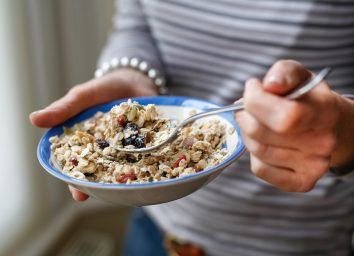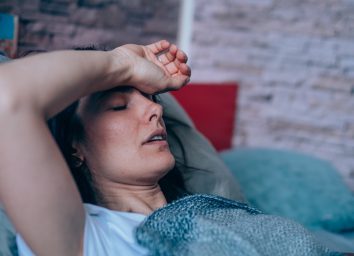What Happens To Your Body When You Eat Right Before Bed
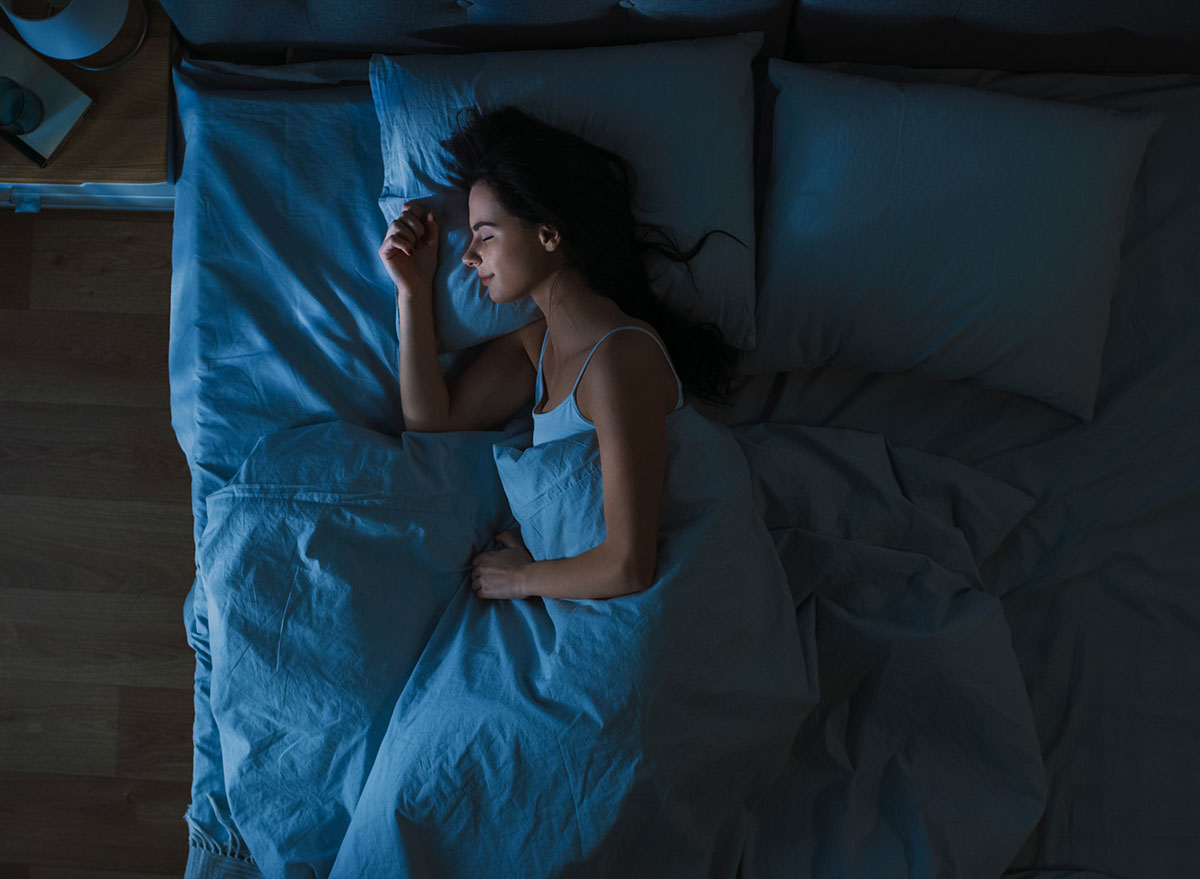
It's 9:30 pm and that familiar question pops into your mind, should I have a snack before bed?
The answer? Well, there are a lot of factors. Eating too much before bed could absolutely sabotage your sleep, however, not eating enough calories before the day's end could also interfere with your sleep cycle. So, there are a few questions you need to answer for yourself before you grab that bag of chips. For example, are you susceptible to heartburn? Did you eat a caloric dinner? When did you workout today?
Below, you'll see five things that could happen to your body if you eat right before bed. And then, don't miss The 7 Healthiest Foods to Eat Right Now.
You could experience heartburn.

Unfortunately, eating a big meal before bed can cause some major gastrointestinal distress, especially if you already have gastroesophageal reflux disease (GERD). When you have acid reflux, stomach acid flows up through the esophagus, which then causes a burning sensation. Eating a late-night meal could cause acid reflux or heartburn because as you lay down with a full stomach, stomach acid can easily travel back up into the esophagus.
Routine nighttime acid reflux This can also worsen asthma symptoms, make it difficult to swallow, and disrupt sleep. Consider eating dinner at least three hours before you go to bed to help prevent nighttime reflux.
Don't miss the 28 Best and Worst Foods for Acid Reflux!
You could lose sleep.
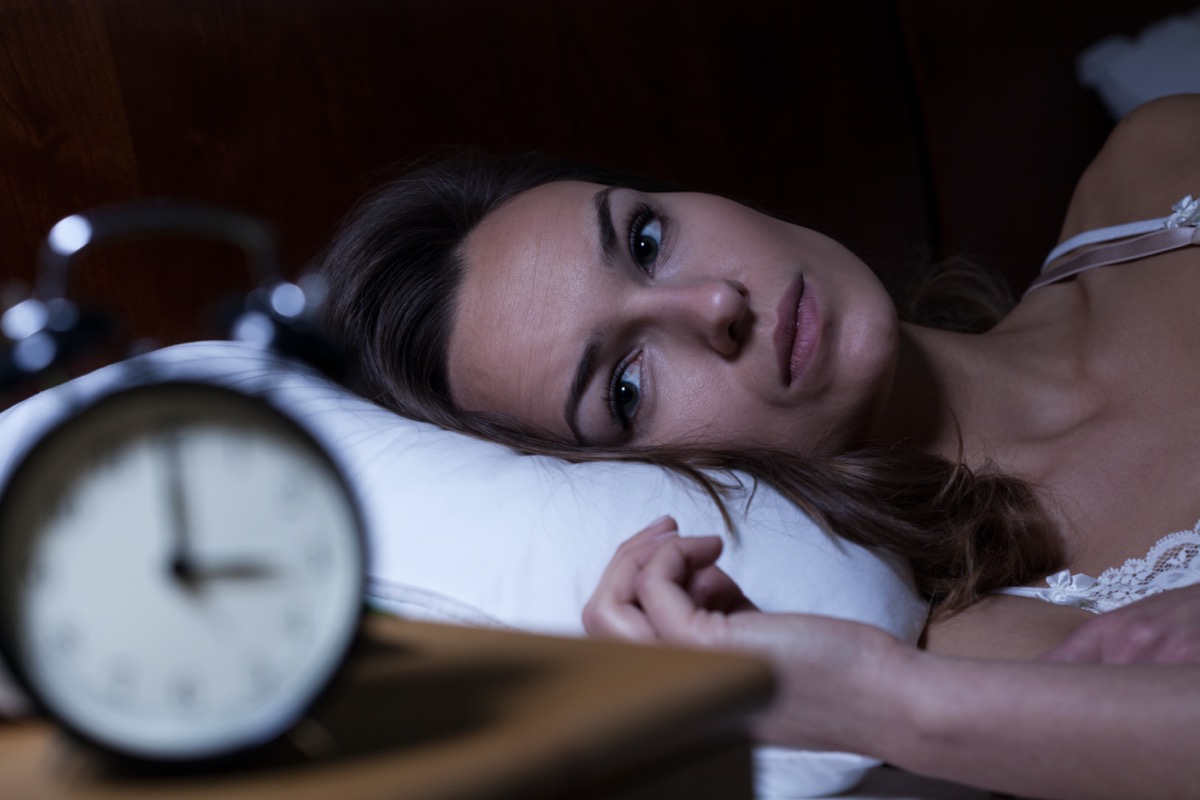
If you've ever gone to bed feeling very full, this shouldn't come as a surprise: It's difficult to fall asleep when you're feeling stuffed. This is especially the case if you eat heavy or spicy foods, as both raise the risk of acid reflux and heartburn. If you must eat right before bed, stick to less spicy options and in smaller portions.
You could also sleep better.
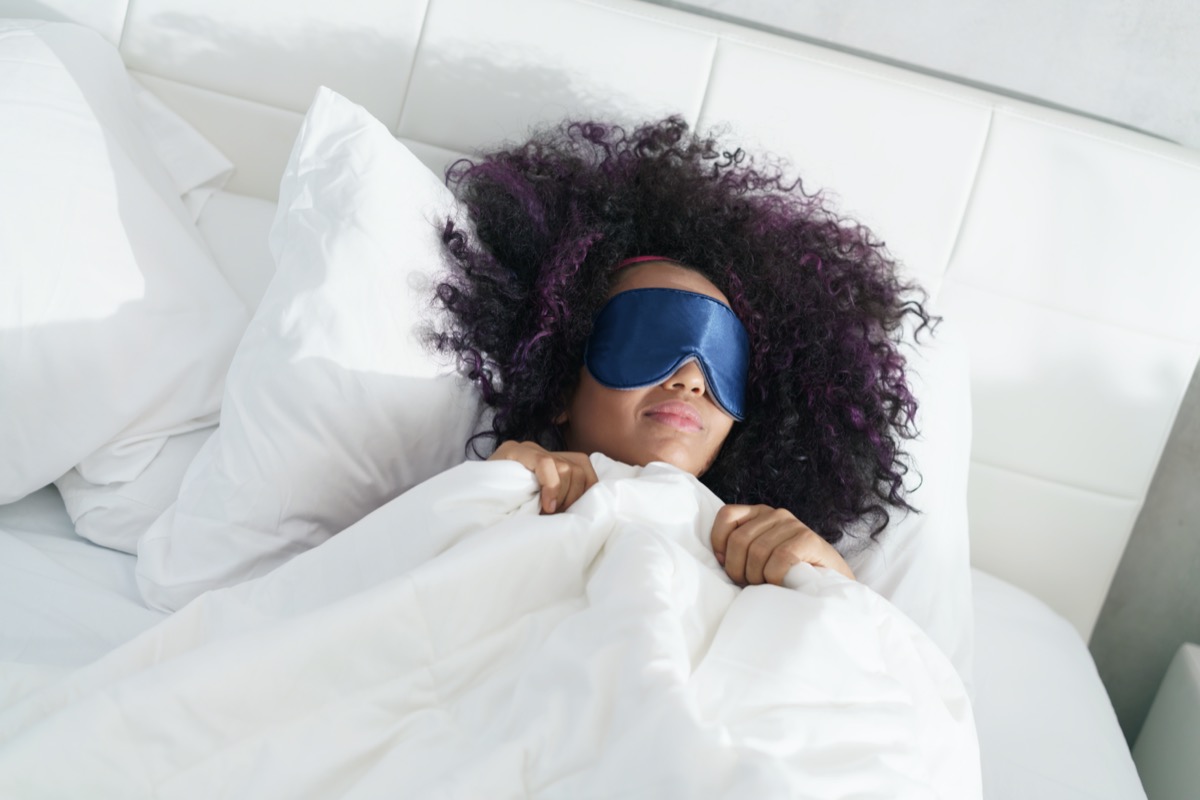
On the other hand, if you don't eat enough throughout the day—or after a tough evening workout and go to bed hungry—you likely won't be able to sleep as well throughout the night. Instead of laying down with a growling stomach, it's best to eat something before you try to go to sleep, preferably something that offers a balance of carbs and protein or fat. For example, a piece of whole toast with peanut butter and a sliced banana would be an excellent snack to eat just before bedtime.
Check out The 5 Absolute Best Foods to Eat For Better Sleep.
Your metabolism could slow down.
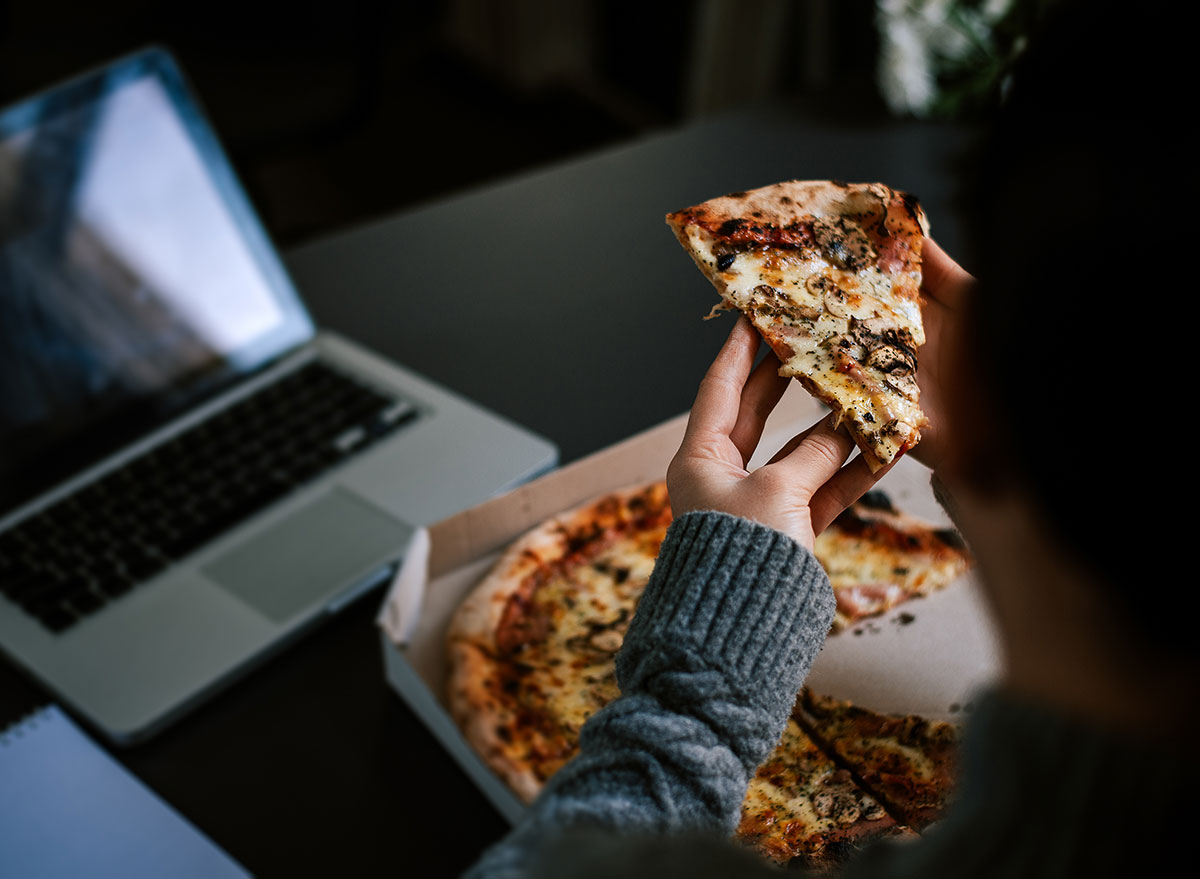
Some experts say that eating late at night could slow your metabolism down, however, there is evidence that suggests that's necessarily true. According to one study, your nighttime basal metabolic rate is roughly the same as what it is during the day, meaning you burn energy (calories) while you're sleeping. The association between a slower metabolism and late-night eating may have to do with overeating. For example, if you already had dinner, but then decide to have a calorie-dense bedtime snack, you can see how that could lead to weight gain over time.
It could help you lose a few pounds.
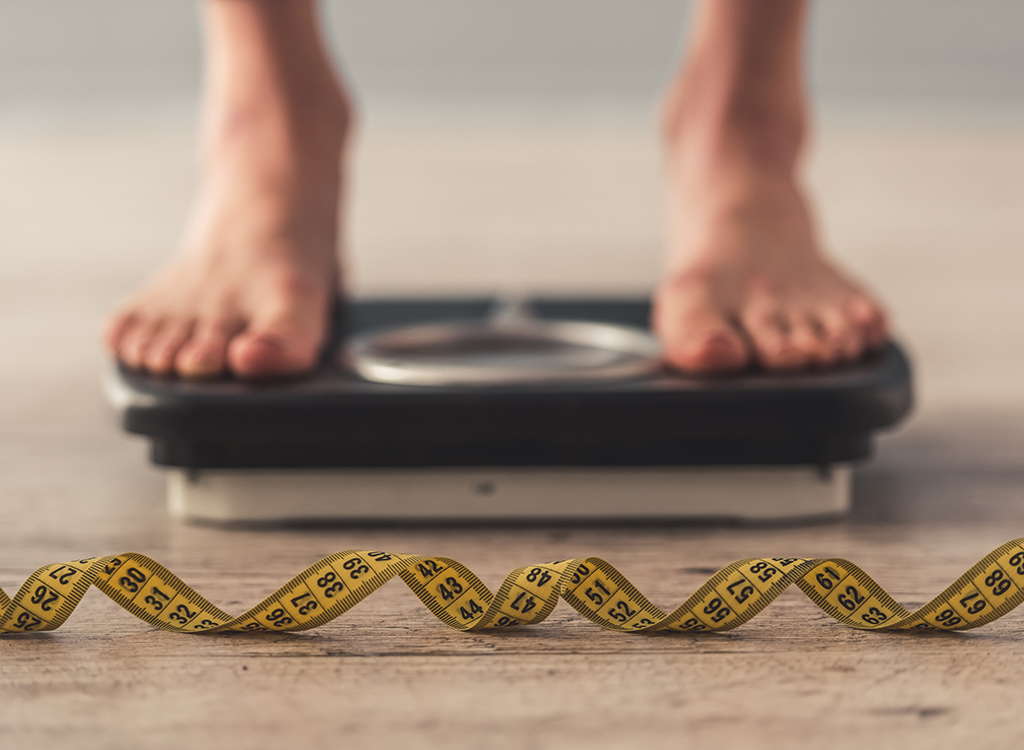
Conversely, eating a bedtime snack could help some people shed some pounds. For example, one study that followed adults who were night-snackers began eating one bowl of cereal with milk 90 minutes before they went to bed. After four weeks, it was found that each individual, on average, ate roughly 400 calories less per day and lost about 1.85 pounds. In other words, the study suggests eating a small snack could help nighttime eaters stay asleep and prevent overeating in the middle of the night.
For more, be sure to check out 9 Eating Habits That Are Hurting Your Sleep, According to Doctors.
